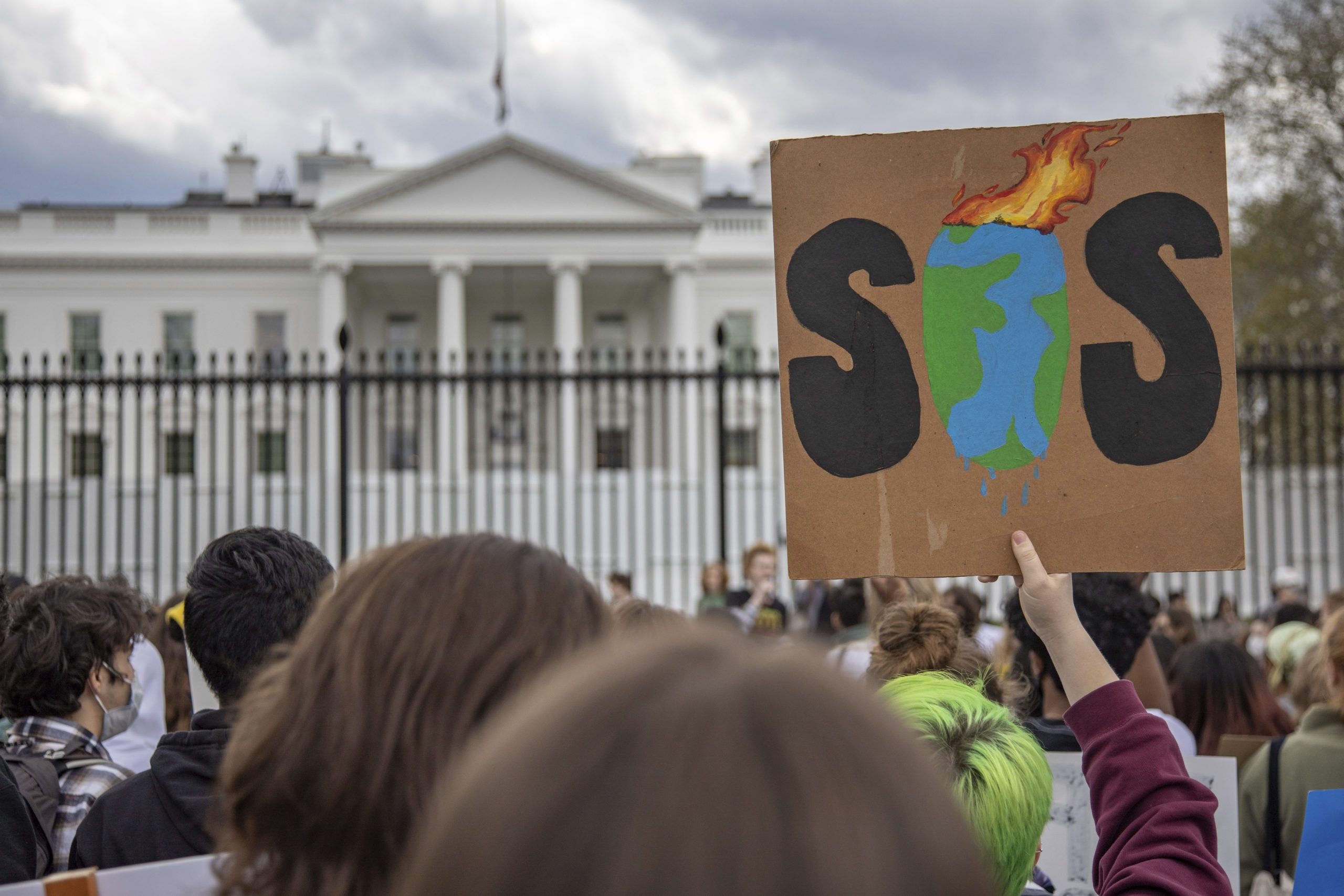Way back in 2017, I saw Edward Maibach, the director of George Mason University’s Center for Climate Change Communication, give a presentation about the climate crisis and the public’s still-limited understanding of it.
People really only need to know five things, he said:
- It’s real
- It’s us
- Experts agree
- It’s bad
- There’s hope
I jotted that five-point list in my notebook and posted it to Twitter. Ever since, those points, which are based on research Maibach conducted in collaboration with the Yale Program on Climate Change Communication — and which, he told me recently, still hold true — have been the rubric I’ve used for thinking about climate-crisis story ideas.
After decades of recklessly presenting an issue of science as a two-sided political debate, mainstream news organizations have gotten better at saying “it’s real” and “experts agree.”
Likewise, following decades of reports from the IPCC warning of calamitous fires, droughts, and storms, we’re now adept at highlighting how “bad” things have gotten.
Television news always has been interested in covering live events like storms and fires. Now, the stakes are higher and, increasingly, I see correspondents like CNN’s Bill Weir including information about the “climate signal” present in the world’s intensifying weather events.
That work is buttressed by the field of climate attribution science, which often is able to show the human fingerprints on a given heat wave or extreme rain event. NPR’s recent coverage of the megadrought in the Southwestern United States, for example, quoted an expert saying that “roughly one-fifth of the current megadrought can be attributed to human-caused climate change.” (World Weather Attribution and the Climate Attribution Database collect scientific studies that seek to quantify the degree to which global warming shapes weather).
All of that is helpful and should be applauded. There’s no point in talking about climate crisis solutions if the public doesn’t understand the massive scale of the disaster we face.
We journalists remain terrible, however, at digging into the myriad ways in which “it’s us.”
And we seem even less ready to remind people “there’s hope.”
A study published last year in the journal Global Environmental Change found that only 2% of global climate coverage from 2006 to 2018 focused on clean energy. About 1% of the more than 71,000 stories analyzed covered divestment from fossil fuel companies. And about 1% covered energy efficiency. All three topics are key to making the economy carbon neutral, slowing the climate crisis, and making the planet safer.
TV news networks, like ABC, NBC, CBS, and Fox, mention solutions in their climate change reporting on their nightly newscasts and Sunday shows less than 30% of the time in 2020 — and that percentage declined from the year before, according to a 2021 Media Matters report.
There are plenty of organizations trying to change this and inject a “solutions mindset” into climate reporting.
The Society of Environmental Journalists has published a helpful list of climate-change solution resources. Harvard’s Belfer Center and the Solutions Journalism Network have hosted discussions. And The Guardian and The Washington Post, among others, announced solutions-focused coverage. I’ve hosted two seasons of a climate-solutions podcast for Foreign Policy.
Still, the impulse in many newsrooms is often to focus on what individuals should be doing to curb emissions — whether that’s driving electric cars or eating less beef.
Those things matter in that they connect individuals to a global phenomenon, and they can help us feel powerful. But, as I’ve argued elsewhere, it’s hardly fair to dump this crisis on the shoulders of individual people when large corporations and governments are profiting from it.
Solutions to the climate crisis must be measured by how far and how fast they take the world toward net-zero emissions. That will require an overhaul of the world’s economy.
Which brings us to the remaining point on that numbered list: “It’s us.”
It’s true that news organizations are now more confident in reporting, accurately, that human activities — largely burning fossil fuels — are driving global warming. A recent study in Environmental Research Letters found more than 90% of the stories in 2019 got this right. But we continue to do far too little to hold corporations and government accountable.
Some investigative journalists shy away from climate stories because they’re seen as rife with uncertainty. They’re not. Human pollution is warming the planet and making the odds of extreme events more likely. Democracy would be well-served if the world’s sharpest investigative reporters turned an eye to the companies and governments that continue to talk about a the zero-carbon economy while doing little to eliminate fossil fuels. Already there are potent examples, including Inside Climate News’s exposé on Exxon’s climate research.
Any policy that promotes the burning of fossil fuels must be seen as negligent at this point. It’s been more than 30 years since scientist James Hansen testified before the U.S. Senate that the era of global warming had begun. We don’t need more IPCC reports like the one released recently to tell us that we are playing with the fate of humanity; the clock is ticking loudly.
Covering the climate crisis is an all-hands-on-deck affair. We need all approaches — all angles, from all beats. My hope is that our coverage of the world’s biggest long-term threat will include more investigative reporting, more solutions, and more context. Some carbon emissions stay in the atmosphere and ocean systems for approximately 1,000 years. The actions we take today matter for at least that long. That fact must motivate us to do better.



